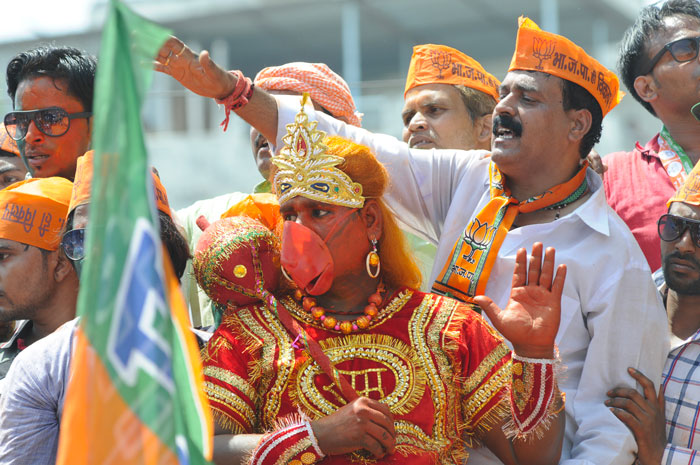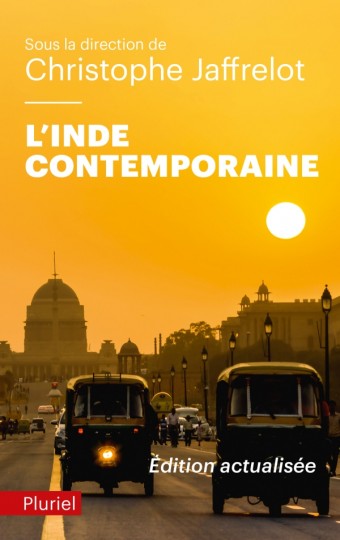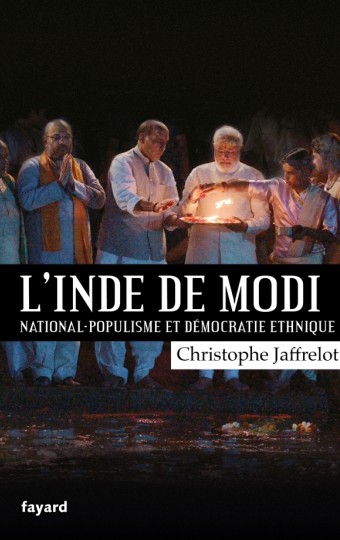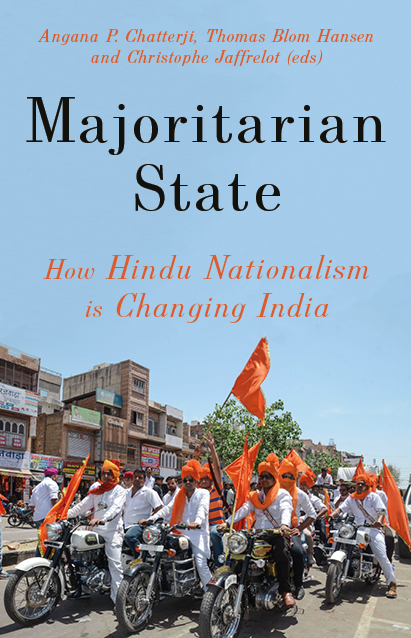Four questions on India. An Interview with Christophe Jaffrelot

A few weeks prior to legislative elections in India, Christophe Jaffrelot publishes three books: as co-editor with Angana Chatterji and Thomas Blom Hzansen, Majoritarian State: How Hindu Nationalism is Changing India (London, Hurst and New Delhi, HarperCollins), L'Inde de Modi : national-populisme et démocratie ethnique (Fayard) and an updated edition of his edited volume L'Inde contemporaine (Fayard, Pluriel). He answers four questions on contemporary India.
The Bharatiya Janata Party has managed to widen its social base and to win the 2014 elections thanks to Narendra Modi’s promises of development. Did he keep these promises? Does the recent defeat of the BJP in regional elections in three northern states (Madhya Pradesh, Chhattisgarh and Rajasthan) show the limits of national populism?
Narendra Modi made promises in 2014 which he, indeed, did not keep. One of them concerned job creations, which rate is so disappointing today that the government has had to hide figures. Also, in spite of the fact that private investment was already down at the time, the economy has suffered a great lot from Narendra Modi’s sudden November 2016 decision to outlaw 1000 and 500 currency notes, accounting for 80% of the money used by Indians on a daily basis. This so-called demonetisation operation, the aim of which was to get rid of corruption, not only failed to meet its stated objective, but mostly caused great turmoil in the economy and in particular the informal sector—the greatest part of the economy—where transactions were all made in cash.
Already the victims of Modi’s politics of keeping agriculture prices low to spare urban citizens—the heart of his electorate—rural regions have suffered most. It is actually because of rural votes that Modi’s BJP suffered a political blow last December in the three Northern states of Madhya Pradesh, Chhattisgarh and Rajasthan that had been under its belt for a great many years (fifteen years for two of them). Elections there were won by opposition Congress Party.
Narendra Modi has worked to prevent social elites from losing their social position and his action during the last five years has reestablished upper class domination in the country. Can you tell us a little about this phenomenon?
These are the subtitles of Modi’s—and other political leaders following similar political styles—national-populism. While Trump expresses a revenge for white supremacists after eight years of Obama administration perceived as acting in favour of Blacks and Hispanics, Modi’s success is largely due to upper-caste Hindus reacting against ten years of a Congress Party government that had applied positive discrimination measures in favour of sub-castes (in particular at university) and, in a more limited way, Muslims.
Modi’s national-populism has been the instrument of a social revenge from upper-castes threatened of a loss of their social position since Modi, acting as a good Hindu nationalist, has aimed at uniting Hindus against Muslim Indians, and even against the country that is increasingly associated with them, i.e. Pakistan. Modi has been able to do this with a populist discourse because he presented himself as an outsider, a man from the masses fighting against the Indian establishment and a political elite incarnated by the Nehru/Gandhi “dynasty”. As a result, there has never been as many upper-caste members of parliament since the 1980s.
Power is centralized, minorities are marginalized, secularism is put into question... is the Indian democracy in trouble? Is there a degradation of the rule of law? What could be the consequences? Is India still the “largest democracy in the world”?
The rule of law is under threat in India and the country is tumbling in all the international rankings that assess the quality of democracies worldwide. There are many indicators of such decline: the repeated attacks against minorities (Muslim and Christian) by Hindu nationalist militias show that the police do not protect all citizens equally; the nomination of friends of power at the head of institutions as varied as the Central Bureau of Investigation (the Indian FBI), NITI Aayog (established in 2015 to replace the Planning Commission) and universities tend to put into question the state’s neutrality; the ban on foreign funding for thousands of NGOs has forced many of them to close down. Today, it is the independence of the electoral commission in charge of organizing national votes that is put into question given the repeated – and never punished by the law—infringements of the very code of conduct that the commission had established.
The electoral process has already been degraded given the very controversial decision by the Modi government to create “electoral bonds.” These bonds allow donators to finance a political party anonymously. Such measure further strengthens the role of money in Indian politics and allows businessmen close to power to pursue their influence through an incredibly opaque crony capitalism. Given the circumstances, the Supreme court and the judicial system in general show some resilience, but decisions are not necessarily applied and many courts seem under influence today...
Finally, what are India’s forecasts in a world in which there is a return to the state?
India no longer favours multilateralism and aspires to become a great power in the international arena. This is made visible by the state’s military investment and Narendra Modi’s diplomatic activism. Modi has mostly concentrated on resisting China and Xi Jiping’s One Belt, One Road programme that Modi sees as a risk of China encircling India. In fact, after Pakistan, previously close neighbours such as Sri Lanka and Nepal may well turn Chinese protectorates. Modi is aware that he cannot resist China alone, and has therefore started looking for allies, the first of which are the United States, Japan and France. However, India’s capacity to become a regional power will depend on the country’s capacity to gain economic power, and in particular, develop a robust industry. Paradoxically, the Chinese seem to be better placed than others to develop the infrastructures India needs! And they are already omnipresent in some sectors...
Interview by Corinne Deloy, CERI.
CERI organizes a debate (L'Inde à la veille des élections: quel bilan du gouvernement Modi ?), during which Christophe Jaffrelot will present L'Inde de Modi : national-populisme et démocratie ethnique on 1st April, 17:00-19:00. Registration & programme
He will present Majoritarian State: How Hindu Nationalism is Changing India (London, Hurst and New Delhi, HarperCollins) at the London School of Economics on May 10 at 6:30 pm. Information available for this event here.













